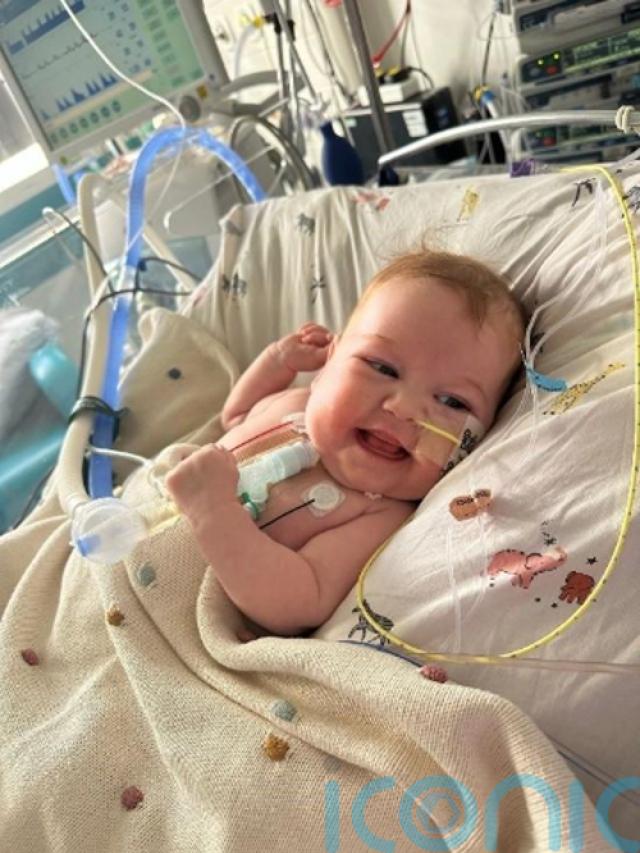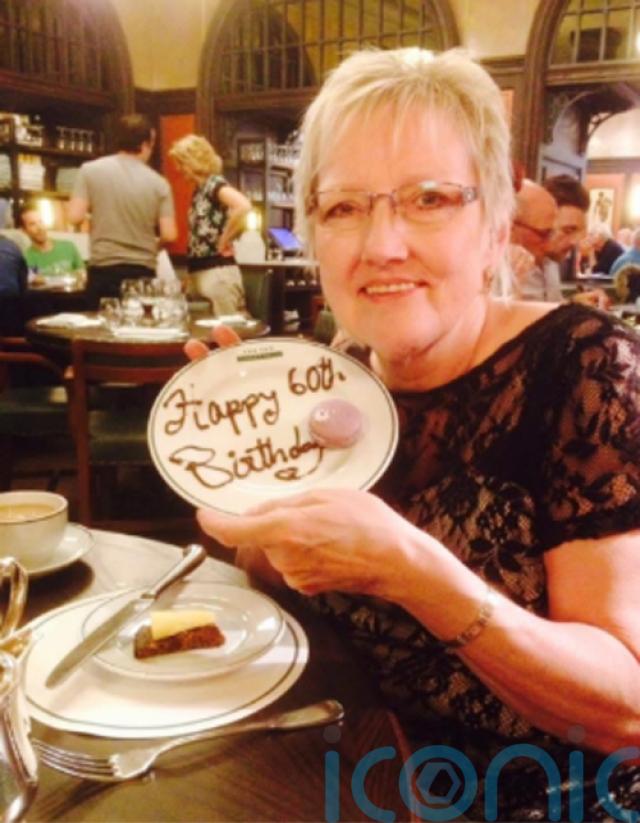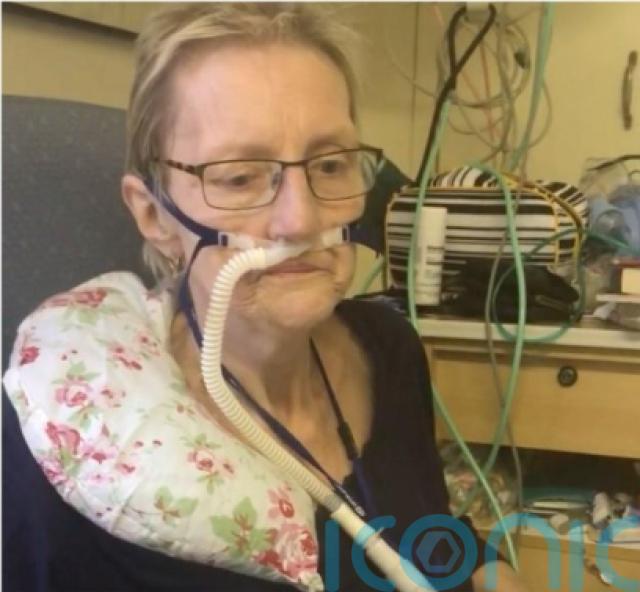
The parents of a six-month-old baby girl who is on the urgent heart transplant waiting list have made a desperate plea for a donation.
Rory Fletcher has been in hospital since the day she was born as she suffers from dilated cardiomyopathy – a condition in which her heart’s left ventricle is stretched and enlarged, and cannot pump blood properly.
The baby girl is in intensive care at the Freeman Hospital in Newcastle on a mechanical heart pump as her parents Becks and Toby wait for a donor’s heart to become available for transplant.
This comes after the UK transplant waiting list reached record levels with 8,000 people still waiting for a lifesaving transplant, while the number of deceased organ donors dropped by 2% last year, figures published by NHS Blood and Transplant (NHSBT) have shown.
But Becks and Toby, from Knutsford in Cheshire, have not given up hope.
“We know Rory is one of the smallest children on the transplant waiting list, which means she is not ‘competing’ against others but on the other hand not many organs are donated from babies, so there are less hearts available in her size,” said 31-year-old mother Becks.
“We would just be so grateful to the donor family if she had a transplant.
“It’s a horrible situation for anyone that loses a child, and not one you ever want to think about.
“But I try to think of it that, if you can come away and turn something negative into something positive for another family, why wouldn’t you?
“It would mean everything to us.”

Becks, a public relations director, said she had “the smoothest of pregnancies” before giving birth by C-section, adding: “As soon as she was born it was clear something was wrong.
“We didn’t know if we were expecting a girl or a boy, and by the time they’d announced she was a girl, she’d turned blue and was whisked away by the nurses.
“Now, I am in ICU with her pretty much all day, every day.
“Toby has had to go back to work, but he visits as much as he can around that.
“It has just totally blown our world apart.”
More than 12,000 people in the UK have died or been removed from the transplant waiting list over the past 10 years before receiving the lifesaving organs they needed, NHSBT said on Monday.
But over the same period of time, more than 44,000 lives have also been saved or improved through deceased and living donor organ transplants.
For baby Rory, it would mean being able to start living a “normal life”, her mother said.
“To get a heart and take Rory home would just be incredible,” Becks said.
“At this point, we’d love to just have any glimpse of a normal life – taking her on a walk out of the hospital, picking her up without worrying about machines and wires, even just hearing her laugh or cry.
“There are so many milestones and normal things we’ve never experienced.”
Organ Donation Week starts soon. Follow @NHSOrganDonor to learn more about why you should become an organ donor and save up to 9 lives.
Share this post and let's spark that conversation about how organ donation changes lives. #OrganDonation #OrganDonationWeek2025 #ODW25 pic.twitter.com/n5gSQEND7k
— NHS Blood+Transplant (@NHSBT) September 15, 2025
On average, more than three people a day died or became too ill for a transplant in the UK over the past decade, NHSBT figures have also shown.
For Lauren Cullinane’s mother Helen, the call sadly never came in time as she died in 2018 after spending three years on the waiting list for a double lung transplant.
Helen had been diagnosed with sarcoidosis — a rare autoimmune condition that causes small patches of inflamed tissue to develop in the body’s organs.
Her daughter Lauren, 39, from Sutton in Surrey, said the wait for a donation was like being “always in limbo”.

“Mum never complained though,” she added.
“She had good days and bad days, often struggling to breathe and was on oxygen 24/7.
“Eventually walking became hard for her and she often had to use a mobility scooter to get around, but she didn’t let it bother her.
“She was always so full of life and was the glue that held our little family together.”

Helen had to be taken off the transplant waiting list after she developed a chest infection and was deemed too unwell to receive a transplant.
Lauren said: “Luckily, we were with her when she died and her last words to us were ‘I’m so sorry about all this’.
“That was my mum – selfless and brave, right to the end.
“I miss her every day, and I so wish she could have had the chance to get the transplant she so desperately needed and deserved – but it wasn’t meant to be.”
She added: “Our emotions struggled knowing that for mum to receive her gift of life, someone else would need to go through the heartbreak of losing someone they love, but I often wonder if mum would still be with us today if more people had had that difficult discussion with their loved ones, and signed the organ donation register.”
To mark Organ Donation Week starting on Monday, NHSBT has urged people to confirm their decision to be an organ donor on the NHS Organ Donor Register.
“Someone will die today waiting for an organ transplant,” said Anthony Clarkson, director of organ donation and transplantation at NHSBT.
“It’s really concerning to see the numbers of people waiting for a transplant slowly rising and people are dying needlessly every day because of the shortage of organs for transplant.
“You are more likely to need a transplant than you ever are to be a donor – and most of us would accept an organ if we needed one – but far fewer of us have made the decision to donate.
“We really need people who want to be a donor after they die to make it clear to their families and encourage them to support that decision.
“People are far more likely to support donation when they know it’s what their relative wanted.
We thought we'd answer some of your most commonly asked questions ahead of #OrganDonationWeek next week.
Confirming your decision on the NHS Organ Donor Register is the best thing you'll do today.#ODW25 #OrganDonation pic.twitter.com/935d8PZprc
— NHS Organ Donation💗🫀🫁 (@NHSOrganDonor) September 19, 2025
“I would urge everyone who supports organ donation to register their decision and make it clear that it’s what you want should the worst happen.
“It only takes two minutes to register but it could save the lives of people who so desperately need a transplant.
“It’s the best thing you’ll do today.”
Last year, 173 families overruled their relative’s registered or expressed decision to donate, NHSBT said on Monday.
In a further 520 cases, families did not support donation where the law presumes consent – meaning their loved one had not registered to opt out but also had not expressed any decision.
Subscribe or register today to discover more from DonegalLive.ie
Buy the e-paper of the Donegal Democrat, Donegal People's Press, Donegal Post and Inish Times here for instant access to Donegal's premier news titles.
Keep up with the latest news from Donegal with our daily newsletter featuring the most important stories of the day delivered to your inbox every evening at 5pm.